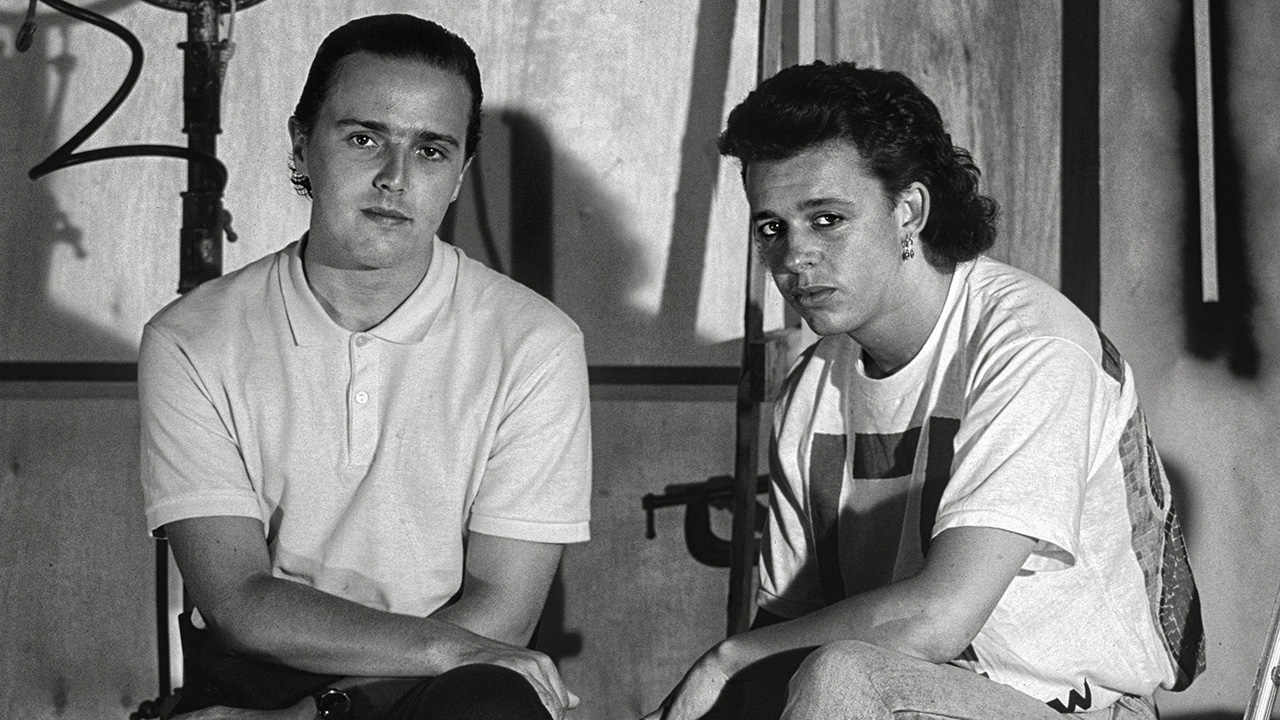“It’s written from the point of view of being older; mortality is the constant.” The inspiration that helped David Gilmour create Luck And Strange
Collaboration, family, mortality and that stridently emotive guitar work - it's all there on David Gilmour's fifth studio album Luck And Strange
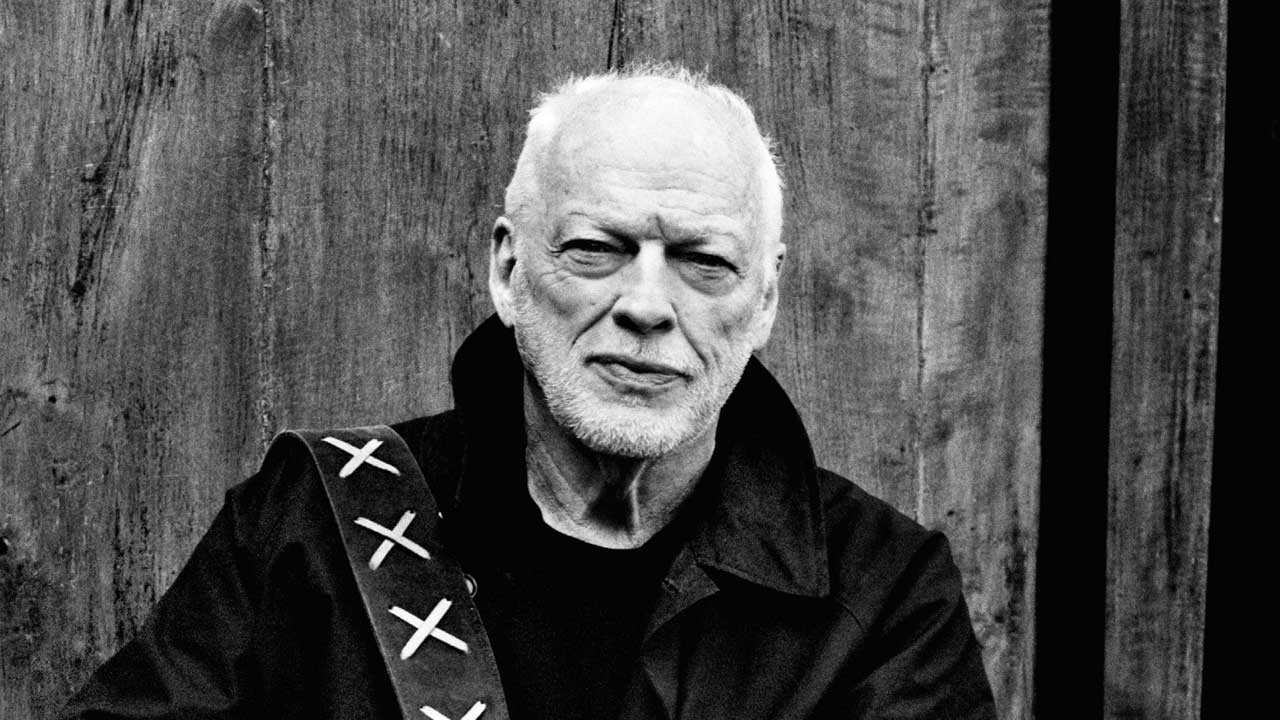
When David Gilmour released his first album of new material in nine years Luck And Strange, back in 2024, Prog spoke to him and wife Polly Samson about its creation, working outside their comfort zone, and why we might not have to wait quite so long for a follow-up!
“It’s over 50 years now since The Dark Side Of The Moon,” says David Gilmour firmly. “My feeling is that this album is the best album I’ve made in all those years since 1973 when The Dark Side Of The Moon came out.”
A pretty bold statement, for sure, and it’ll certainly add fuel to those that dwell in the darker recesses of the internet, intent on spreading scurrilous wildfire, but when the man whose voice and guitar tone went a long way to making said album the enormous success it was says suchlike, maybe they should sit up and take notice.
It’s been nine years since Gilmour last released a solo album and Rattle That Lock gave him his second UK No.1. His first was that album’s predecessor, On An Island, which had similarly been released nine years previous in 2006, although anyone who thinks they’re seeing a concurrent theme here should think again (and it’s something we’ll address later in this piece).
Despite its success, Rattle That Lock is an album that can draw the odd curmudgeonly comment from fans – largely, it seems, because in their minds it doesn’t sound like David Gilmour. Or rather the David Gilmour they want it to sound like: the David Gilmour of richly expressive guitar notes in that oh-so distinct guitar tone, of fluid and sometimes furious soloing; a David Gilmour who sounds as close to Pink Floyd as they can get, given the mothership lies dormant. It’s probably not music to Gilmour’s ears, but you suspect, given his emerging victorious in the Floyd wars, nothing that’s really going to bother him unduly either.
So now, nine years on from Rattle That Lock comes Luck And Strange. Gilmour’s fifth solo venture is released on September 6, which just happens to be the birthday of one Roger Waters. “Not intentional!” stress the Gilmour camp, but whether it is or it isn’t, it’s certainly something to delight the gossip mongers. But whether the album’s release is designed to cock a snook to Gilmour’s former bandmate or not, more pressing for fans is what it sounds like. And is it, as Gilmour claims, the best thing he’s recorded and released since DSOTM?
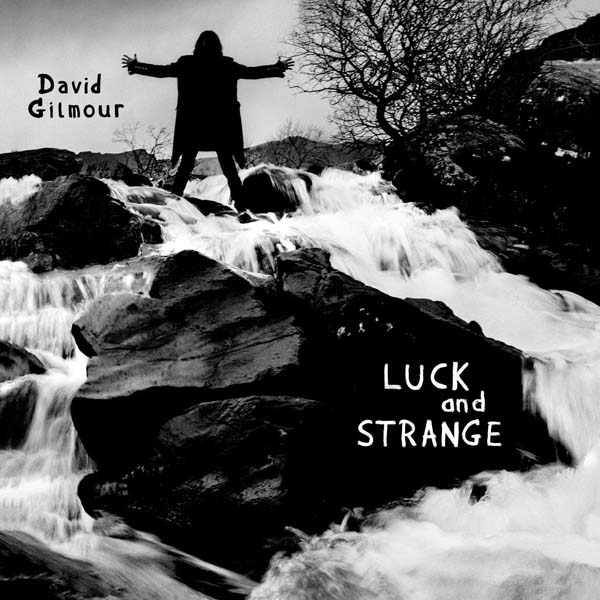
First things first, Luck And Strange is good. It’s very, very good. Certainly different from Rattle That Lock and up there with Gilmour’s self-titled 1978 debut solo release and On An Island as one of his finest solo albums, that’s for sure. Whether it’s better than Pink Floyd’s Wish You Were Here, Animals, The Wall or The Division Bell is a debate that could rage online for years to come.
Sign up below to get the latest from Prog, plus exclusive special offers, direct to your inbox!
But for those looking for some of Gilmour’s finest guitar playing, his instantly recognisable soloing, that distinct voice and some excellent songs, Luck And Strange is likely to make happy listeners. The lyrics are once again from wife Polly Samson, save for Scattered, on which Gilmour and son Charlie both chip in, and a cover of The Montgolfier Brothers’ Between Two Points, curiously something that seems to irk online detractors. Here the author largely ruminates on mortality, which depending on your take is either entirely fitting for an album from a 78-year-old rock star, or a tad morbid. As lines such as, ‘A one-off peaceful golden age/That’s a dark thought in the dark’; ‘The promise of eternal youth/The spoils of fame, a carpe-diem attitude’ and ‘The light’s fading, you say, but these darkening days/Flow like honey’ snake their way through those wonderfully biting guitar licks, they add a gracefulness to the overall laid-back feel. It’s only shattered by the down, dirty and decidedly heavy, not to mention somewhat unexpected, Dark And Velvet Nights nestled in the middle of the record, which will undoubtedly delight those who enjoy hearing Gilmour cut loose on that guitar.
“It’s written from the point of view of being older; mortality is the constant,” says Samson. “It’s something we talked about a lot during lockdown: ‘What am I going to do when you die and I’m left all alone?’ Luck And Strange itself really came from the time of the Ukraine invasion, thinking, ‘This is awful, what’s going on? Plague, then war.’ And then someone said to me, ‘Maybe if you look at history, you’ll see this is normal; you’ve just lived through periods that didn’t have those things and that’s abnormal.’ And I think that’s chilling, really chilling.”
“We spent a load of time during and after lockdown talking about and thinking about those kind of things,” Gilmour adds.
Although anyone would be hard pushed to call an album released in 2024 and recorded recently a ‘lockdown album’, not thematically, anyway, the impact of that period of time from March 2020 through to July 2021 has certainly played a part on Luck And Strange, not least the Gilmour family’s own Von Trapped Family livestreams that were, like many other artists’, broadcast from their home via YouTube. That familial feel has carried on through to Luck And Strange, not just with Samson providing lyrics, but also with appearances from Romany and Gabriel Gilmour on backing vocals, the latter having previously played piano on In Any Tongue from Rattle That Lock, and the former helming the aforementioned Montgolfier Brothers’ cover in quite wonderful fashion.
“[The Von Trapped Family] started off with everyone singing – me, Charlie, his baby and then, gradually, the rest of us started to realise what we sounded like and left them to it,” laughs Samson.
“It showed us what a great blend my daughter Romany’s voice and harp-playing could be to things,” Gilmour adds. “That sort of led us into a whole extra sort of feeling of discarding the past that I was bound to, in a way. I could chuck out all those rule books and we could do whatever the fuck we liked. And that has been a joy.
“Her voice has got a slightly diffident thing to it because she didn’t want to do it: ‘Oh God, I’ve got to get a train home and write an essay!’ We made her do it before she left. She was cross.”
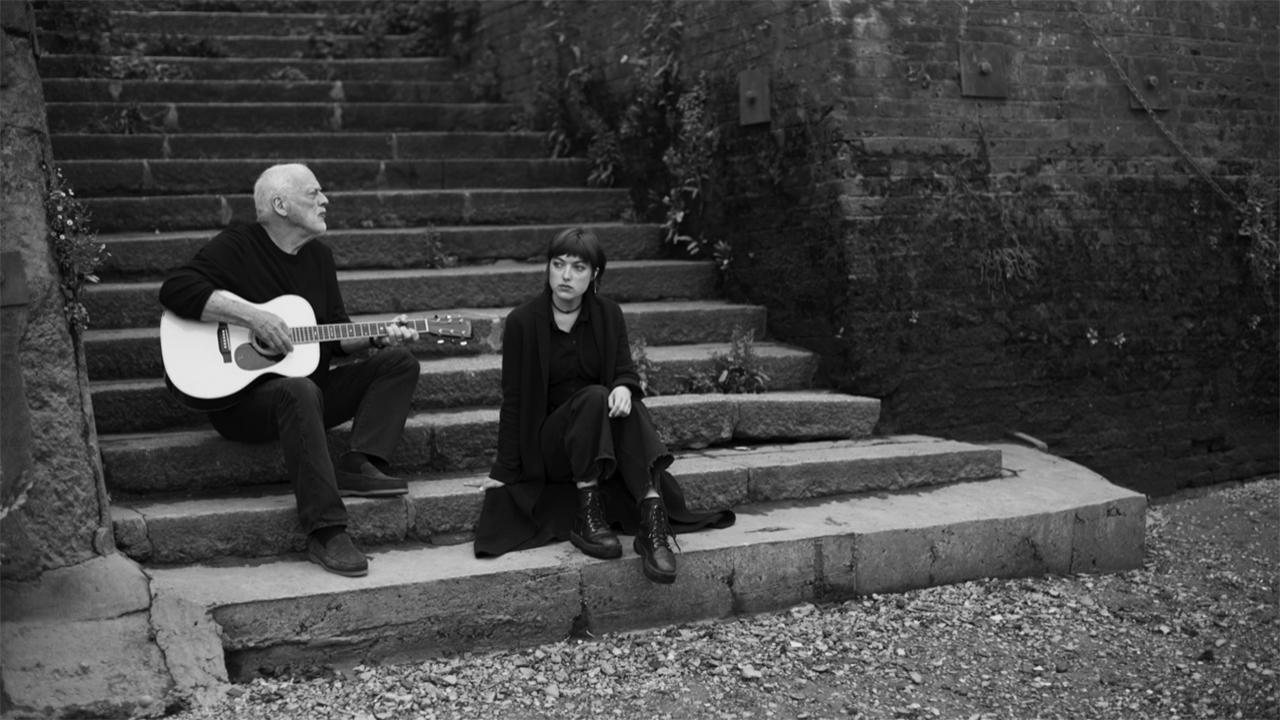
So, how did a cover of a song by a relatively little-known 90s UK dream pop duo end up on the album?
“It’s a lovely, lovely song that Polly and I have known and loved for many, many years,” Gilmour explains. “We talked about it having cropped up accidentally on our playlist a while ago and we thought, ‘Why not have a look at it?’ So I started putting a backing track together. I’m not really trying to make it different from the original but I’m not trying to make it the same, either. I’m just going wherever I’m led by the music to try to capture something of what the original has.
“I did it in one key originally because I thought I might be singing it, but then we realised it didn’t lyrically suit me. So we changed the key and got Romany to sing it. She has exactly the right balance of forcefulness and vulnerability. She knocked it off in a take. She didn’t know the song at all; I played it to her and said, ‘Sing.’”
What those Von Trapped Family sessions also did was kickstart the desire and perhaps urgency for more creativity, in both Samson and Gilmour, singularly and collaboratively.
“We just got really, really comfortable at home during lockdown, walking in the same woods, looking for the same mushrooms, we didn’t really un-lockdown,” says Samson. “I had bits of songs, David had bits of music, but there was a feeling we might never actually do anything if we didn’t make a change. Something had to give.”
“I’m constantly working,” continues Gilmour. “Constantly writing. Constantly working in my little studio at home. There came a time when we decided, Polly and I, to go off to a little quiet place somewhere else which turned out to be in north London somewhere, where we could both have a room more or less next to each other with tiny studio bits set up in one and a nice desk things in the other. And we could keep prompting each other, and feeding lyrics to me as I was feeding music up to her.
“It turned into a Monday to Friday sort of job, working hard all the time. Collaborating and contributing. Which worked really, really well for us for quite a while until the whole album started taking some sort of shape. Polly was really virtually writing all the lyrics. She wanted me to write lyrics. But I think the freedom she had to take it on and just go all the way through an album has given it a sort of consistency and it’s got a feeling that runs all the way through the album that seems to me to be important.
“Anyway, after that we went through the process of thinking how we were going to move it forward. We pushed on and started turning morsels of music from quite well-done demos into proper songs in preparation for moving it on to having musicians and working in proper studios and finding the right producer for this project. I’ve worked with a few producers over the time. Some are great friends of mine. But it felt like we needed something new on this particular occasion and Polly did the research, really. Polly hunted down producers, looking for people who had won prizes.
“When you work on your own in a room with a computer, I can play the instruments. But there’s a difference between doing a guitar through a little box – some of the guitar solos are done through the little box and you can make things come alive, but real drums and real people playing together in a room is just the magic of what you’re doing – for part of what you’re attempting to do. And it’s lovely to move out of this little kind of sterile room. But it’s not really sterile because great stuff has come out of that room and Polly’s writing room upstairs. The work we did there was magical, but you still have to then move on to a bunch of people who then throw in their own ideas and broaden the scope of it all by adding their skills and invention to what you’re doing. It makes a huge difference.”
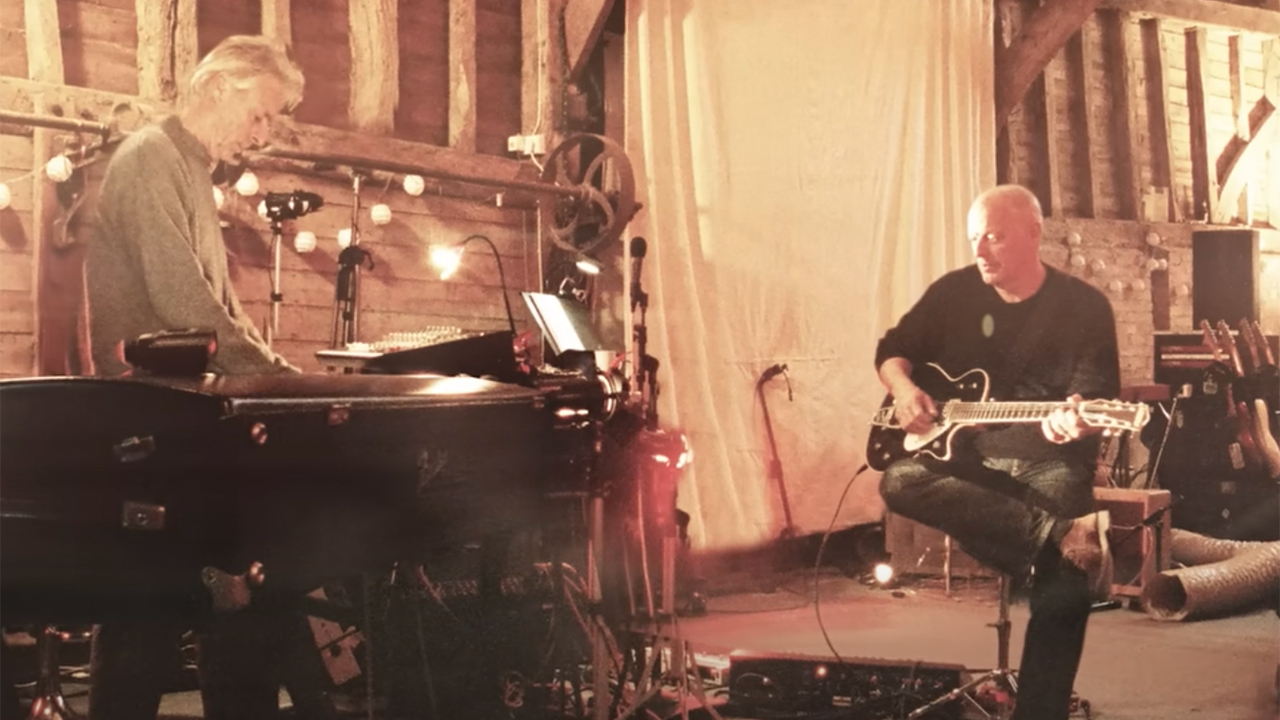
Luck And Strange was recorded at Gilmour’s Medina Studio and Salvation Studios, both in Brighton, and at Mark Knopfler’s British Grove Studios in London (with strings added at London’s Angel Studios and a choir at Ely Cathedral), and although it sounds very much like a David Gilmour album, having some of the family appear in the record isn’t the only break with the past on display here. The “discarding the past that I was bound to” that Gilmour talks of. Step forward producer Charlie Andrew, a man best known for his work with progressively-minded indie rockers Alt-J, even if his CV also includes working on The Lord Of The Rings and Harry Potter soundtracks and, whisper it, even Roger Waters’ The Wall – Live In Berlin during his days as an assistant at Abbey Road Studios.
“I’m not sure he’d actually heard of David Gilmour,” says Samson with a laugh.
“We invited him down to the house and he came and listened to a demo or two and he was like: ‘Well, why does there have to be a guitar solo there?’” chuckles Gilmour. “And, ‘Do they all fade out? Can’t some of them just end?’ He has a wonderful lack of knowledge of, and respect for, my past. He’s very direct and he says what I think and he’s not in any way overawed. And I loved that. This is just so good for me, because the last thing you want is people just deferring everything back to you.”
It’s not all out with the old and in with the new, however. Guy Pratt, who played bass in the Gilmour-led Pink Floyd from 1987-1994, and also featured on Gilmour’s On An Island and Rattle That Lock tours, not to mention is a mainstay of Nick Mason’s Saucerful Of Secrets, features on bass. Additionally, American drummer Steve DiStanislao, who also toured with Gilmour on the On An Island tour, as well as appearing on Rattle That Lock, also features.
Joining them on the album are keyboard players Roger Eno and Rob Gentry, bassist Tom Herbert, well-known session drummer Steve Gadd and also Adam Betts, drummer with London prog rockers Three Trapped Tigers.
But it’s the posthumous presence of the late Pink Floyd keyboard player Rick Wright that will tug on the heartstrings of most fans. Wright, who died in 2008, features on electric piano and Hammond on the album’s title track, from sessions originally recorded in 2007 at a jam in the barn at Gilmour’s house.
“I toured in 2006 and Rick asked if he could be in my band and I said, ‘Of course,’” Gilmour explains. “When we finished that tour, in the January, I got together that touring band and said, ‘Come down to the house and we’ll jam for a week in the barn.’ What was going through my addled brain I don’t know – it was fucking freezing in that barn. Anyway, the first jam we did on the Monday morning was the one that became that song – I added a chorus and middle eight, rebuilt the stuff on top with different chords. There’s bits where Rick’s playing a Hammond lick and I’ve put guitars on since, and I’m playing with him, bouncing off his keyboards and it is a bit weird, but I’m not phased by that element of Rick being there at all at the moment. I just think, ‘Ah, it’s Rick, it’s me, we’re playing.’
“It’s the luck of the very strange moment,” he says, referencing the album title, “that me, and baby boomers in general, have had such a fortunate moment with so many positive ideas that one thought was moving us forward but we’re back in a much darker time. This is normality. What was before the lucky strange moment isn’t the norm.”

What’s lucky for Gilmour fans is that, today at least, the man has little desire to continue to operate in the more relaxed manner of the past two decades or so. He’s taking the new album out on the road, albeit strictly under his own terms, with a handful of performances at select venues in London, Rome, Los Angeles and New York. Better still however, he’s keen to get moving on his sixth solo album almost immediately.
“Our plan is just to get this one out and run it and then do another one straight away,” he says. “I will be working with all these people again. I’ve had this problem in the past, of wanting to throw myself in the studio with a few people and just kick stuff around, but not knowing who those people should be. And that is now a pressure that’s evaporated, because I’ve got these phone numbers. It feels like a team and I love being in a team – I didn’t choose to be a solo artist.
“Being in a band when you’re young, you’re equal members at the outset: you can shout at each other and criticise and have any tantrum you like, but you still stick together. But when you have achieved the higher levels of success, most of the people that come into your sphere are going to look to you. They’re not going to be like Charlie Andrew – Charlie is the kind of refreshing thing that you want to have happen to you.”
Interesting ruminations, then, on Gilmour’s impressive career both as a member of Pink Floyd and as the solo artist he is today. Plenty for the many Floyd-watchers to obsess over. It is, without a doubt, a more content and happy Gilmour on Luck And Strange, that’s for certain.
“I started off in a pop group,” he muses. “And I found myself eventually in the position of leading that group. Not ever a position I was hoping for or looking for. Being a solo artist? Also not what I really asked for. I always preferred being a part of something. And this album feels much closer to that than all I’ve had over all these years. With a group of people who are all very collaborative and very positive and putting in everything they can into what we’re doing.”
Writer and broadcaster Jerry Ewing is the Editor of Prog Magazine which he founded for Future Publishing in 2009. He grew up in Sydney and began his writing career in London for Metal Forces magazine in 1989. He has since written for Metal Hammer, Maxim, Vox, Stuff and Bizarre magazines, among others. He created and edited Classic Rock Magazine for Dennis Publishing in 1998 and is the author of a variety of books on both music and sport, including Wonderous Stories; A Journey Through The Landscape Of Progressive Rock.
You must confirm your public display name before commenting
Please logout and then login again, you will then be prompted to enter your display name.

